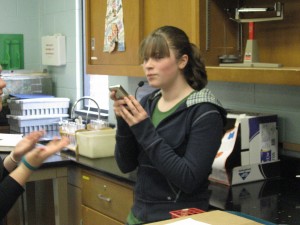 (This is the tree I see when I look out my classroom window.)
(This is the tree I see when I look out my classroom window.)
Lately, when I read what others write about education and education reform I feel a sense of confusion. It doesn’t seem to relate to what I see at school. Everyone has opinions and ideas for what needs to be changed. But none of it mirrors my experiences as a teacher.
So I remind myself to “hold on to what is good.” What is good about public education? Maybe it is too simple to make the news…Talking with a student about their interests and helping them discover their own power to learn and grow. Adults and children working together to create something meaningful and good. Connecting. And I try to “hold on to what I believe.” Like the tree which stands by itself, there is only one thing that I need to focus on, the student in front of me right now. What will be best for that student today? Each young person is unique, interesting, and has something to share. When we value them individually students gain the confidence to reach out for success. That is all that really matters. “What we must do” seems overwhelming sometimes, but we know we cannot give up. The end result we work for may be a long way from here but each day we can take another step.
Politicians and journalists discuss education reform. But inside our schools teachers are working hard to make improvements and to meet the personal goals that they have set for themselves as educators. Simple goals like getting to know each student individually, being alert for bullying in the hallways and cafeteria, helping each student make a personal connection to the curriculum, and finding new ways to motivate reluctant learners. This is the kind of reform that I hear teachers discussing every day. As I begin an exciting and promising school year with another amazing group of 8th graders, I will tune out the critics in the media and hold on to what I believe.





